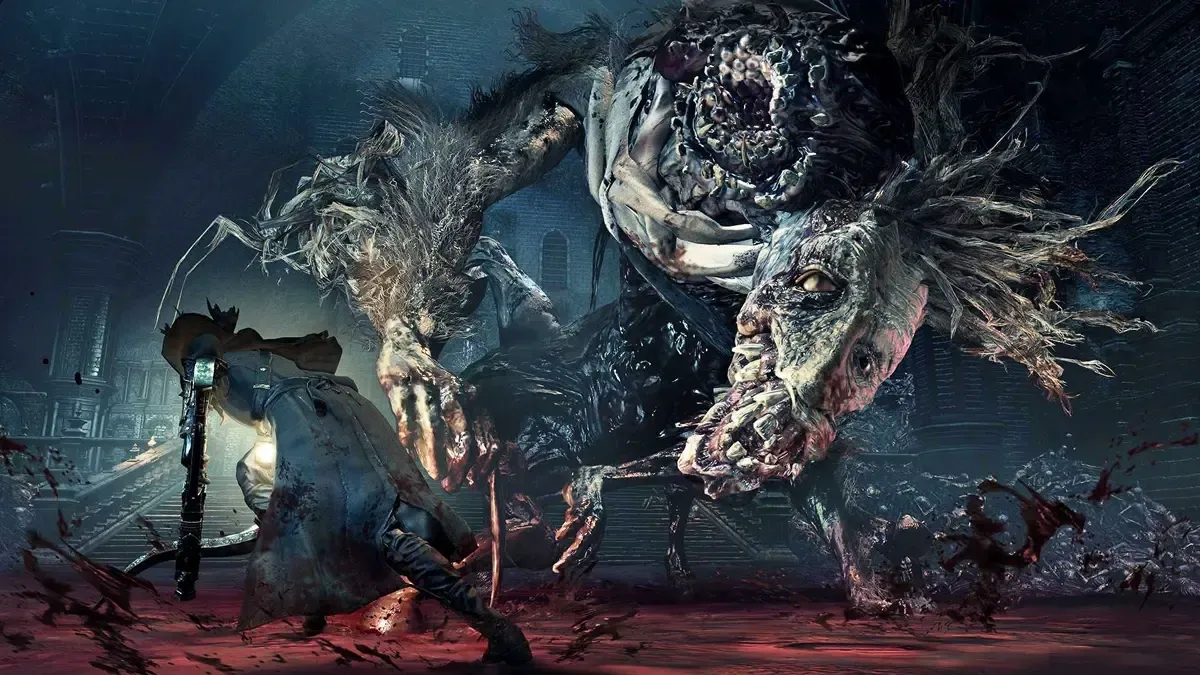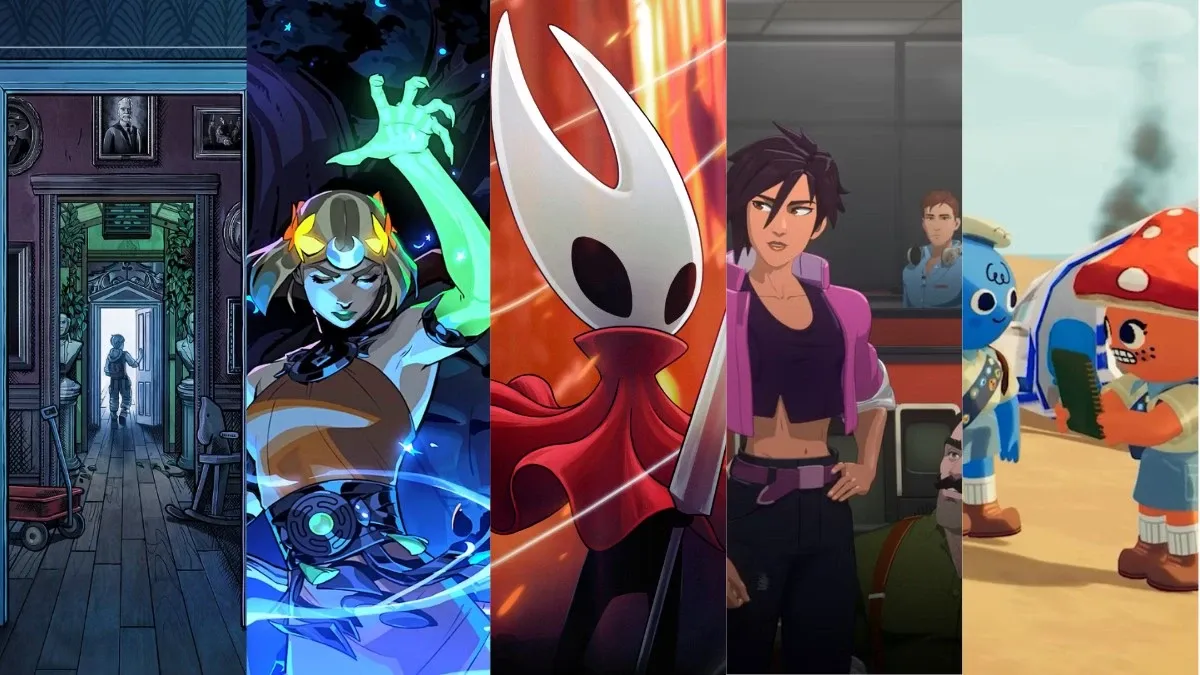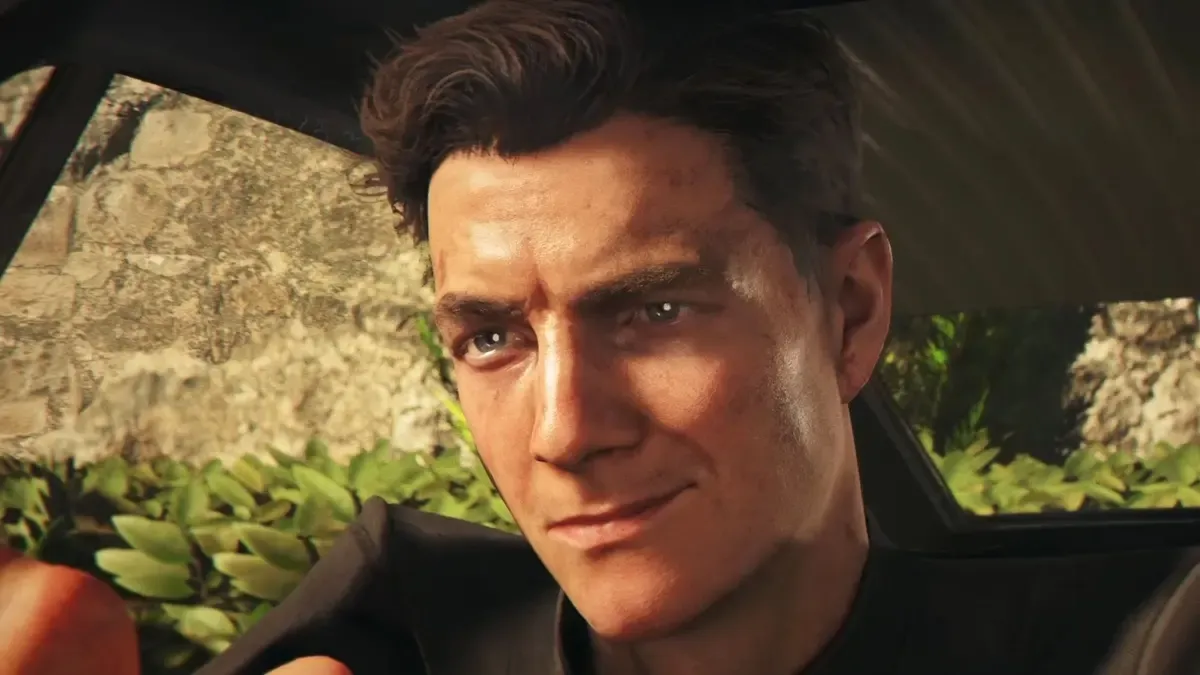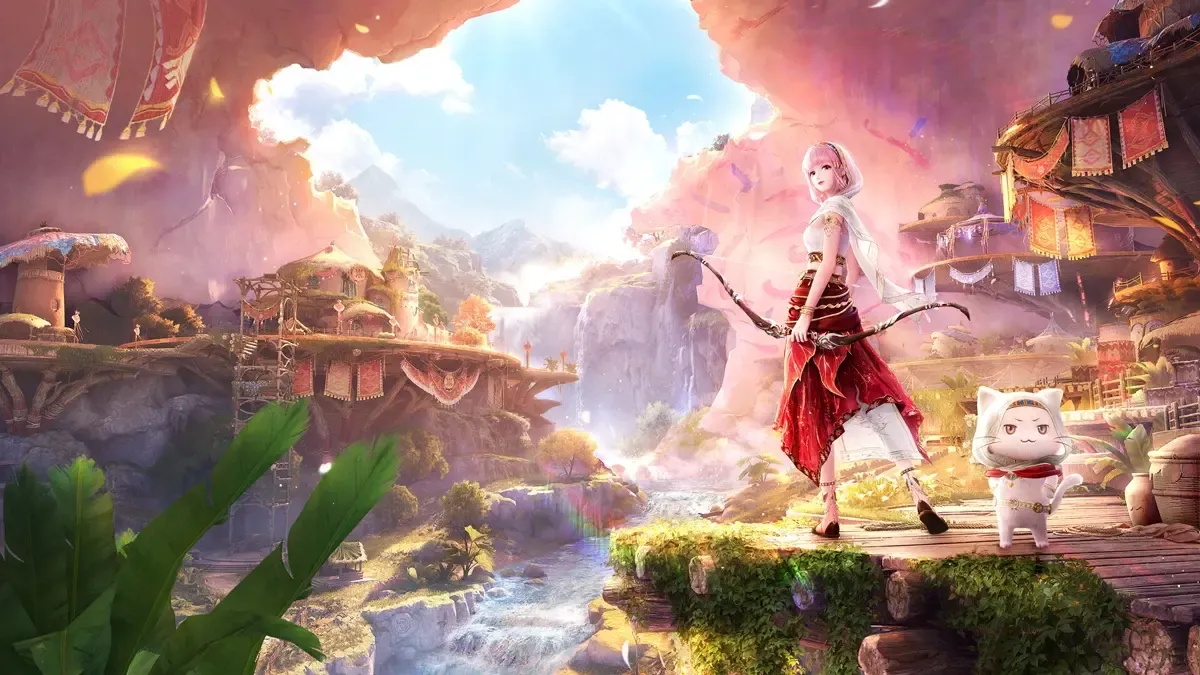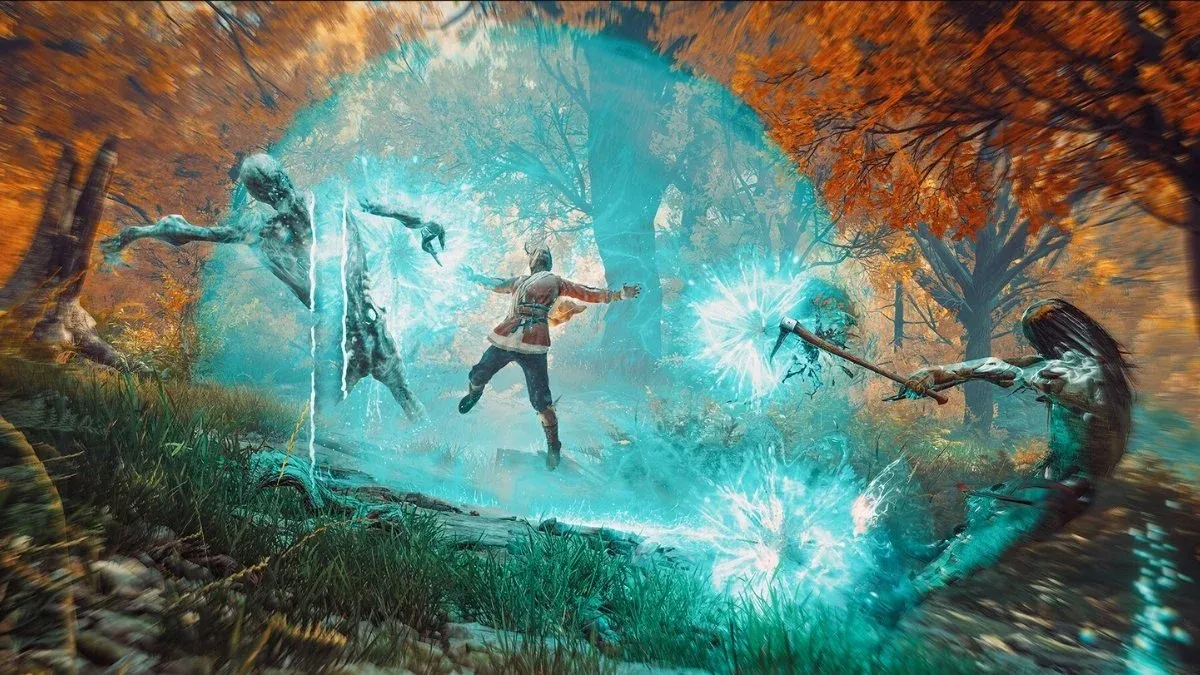If you’re looking for games to play on Mother’s Day, we have some recommendations.
Motherhood isn’t a topic often tackled in video games, but that doesn’t mean that it’s totally ignored in the medium. A few of our favourite video games have tackled the concept in very different ways, establishing mothers as warriors, nurturers, and generally everyday people with problems of their own. Motherhood is a diverse experience, and gaming is a diverse medium. Here are our five favourite games that centre around motherhood:
Life is Strange and Life is Strange: Before the Storm
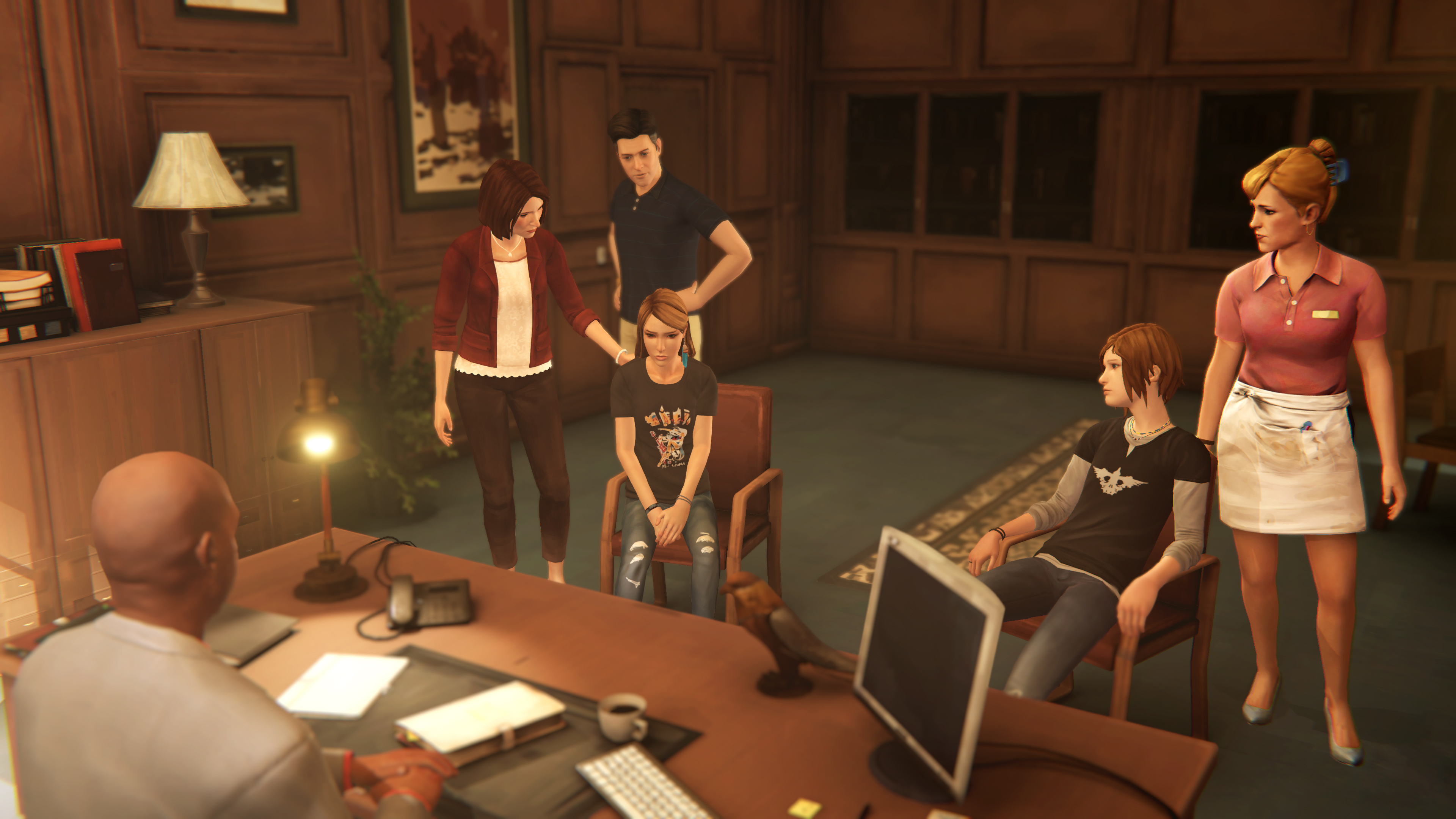
By Timothy Raj Augustin
Sure, Life is Strange is a game about time travel, childhood friends, and small-town murder, but it’s also a game about motherhood–if only covertly so. In the game and its later prequel Life is Strange: Before the Storm, we learn about Chloe Price’s troubled relationship with her mother Joyce Madsen. Chloe’s prickliness when it comes to Joyce betrays the fact that their relationship hasn’t been the same since Joyce’s first husband and Chloe’s father, William Price, died in a tragic accident.
Perhaps as a result of her father’s death, and her love interest Rachel Amber’s disappearance, Chloe has become pretty difficult to deal with in her teenage years. While we mostly see Chloe’s side of the story in these games, it’s made very clear that Joyce is struggling herself. Bills are piling up, her new husband David Madsen isn’t getting along with Chloe, and there is the small matter of her first husband’s recent death.
Joyce is doing her best against all odds to be a good mother and never really lets Chloe down, but she doesn’t take any of her nonsense either. In many ways, she and Chloe are incredibly similar. Perhaps that’s why it takes a while for the two to see eye-to-eye again.
What Remains of Edith Finch

By: Anna Bernardo
What Remains of Edith Finch isn’t about motherhood in the traditional sense. However, the game quietly and powerfully explores what it means to be a mother, and the weight that mothers carry, especially in the face of grief, legacy, and trying to protect their children from the things they can’t control.
The clearest thread of motherhood runs through the Finch family matriarchs: Edie, Dawn, and even Edith herself, who is revealed by the end to have become a mother before her death. Each of them responds to the family’s history and its so-called curse in different ways, but at the heart of their choices is a desire to shield or prepare the next generation.
Dawn, Edith’s mother, is perhaps the clearest example. After watching most of her family die in tragic, strange ways, she tries to protect Edith by locking up the past; literally closing off the rooms of the dead and moving them away from the house. Her approach is rooted in love, but also fear. Meanwhile, Edie, the grandmother, does the opposite: she preserves every memory, building shrines to her lost family members and passing down stories as if they’re myths. Both women are trying to mother in the only ways they know how.
The game ultimately circles back to Edith, who becomes a mother herself. By writing down the family’s history for her unborn child, she chooses not silence or obsession, but understanding. It’s a simple, painful act of love: telling the truth, even when it hurts. Edith Finch captures the essence of motherhood as something more than nurture; it’s a quiet, stubborn hope that maybe, by remembering, something of you will live on.
Resident Evil Village
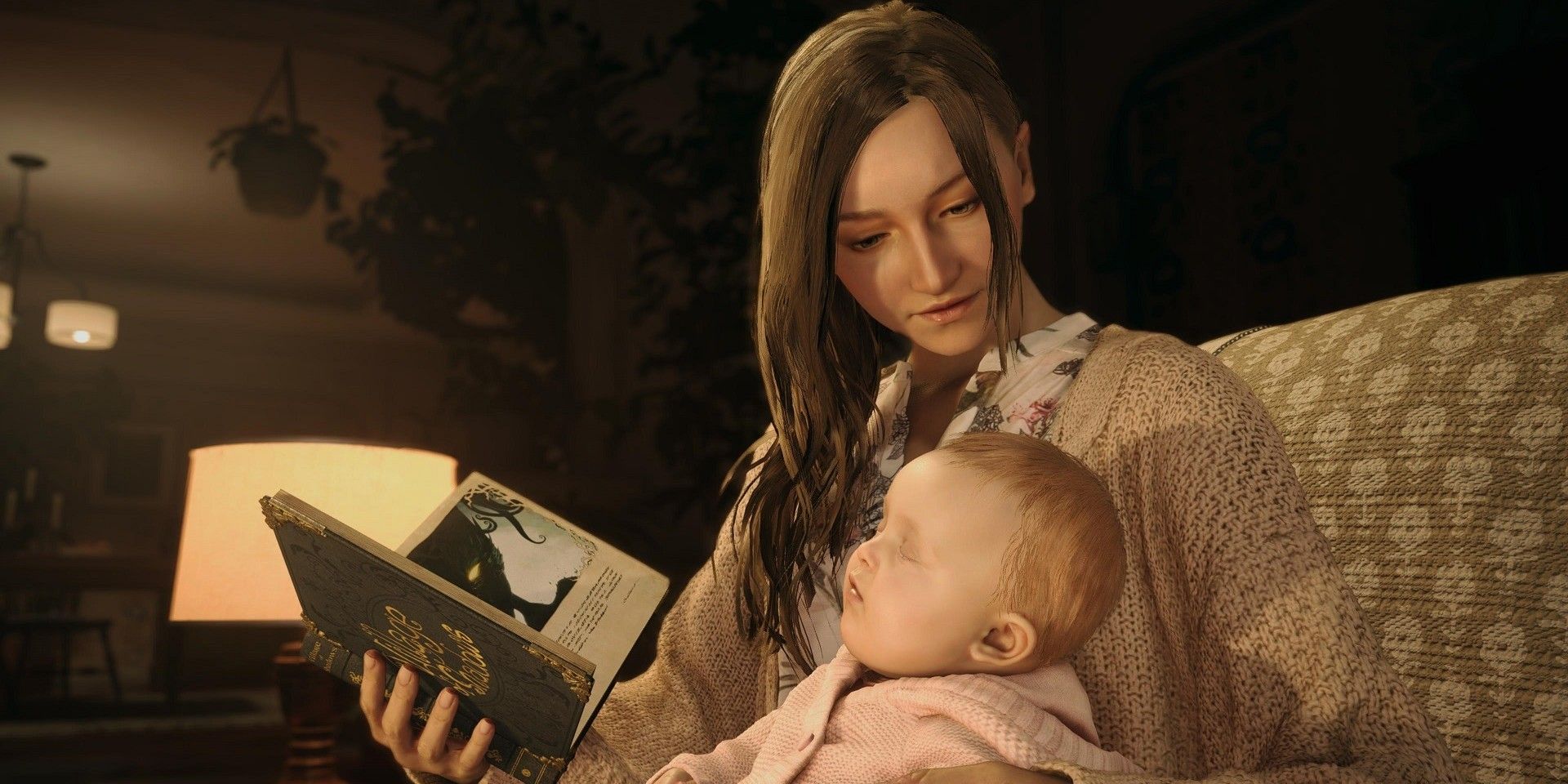
By Arianne Blanco
Although Capcom’s Resident Evil Village follows Ethan Winters as a father, the game first and foremost highlights maternity, motherhood, and the various aspects that come with them.
The game picks up where Resident Evil 7: Biohazard left off. With Ethan and Mia Winters having survived the Mold, the couple continues on with their lives, and even have a child together named Rosemary. Although things may seem idyllic for the little family at first, Village almost immediately puts us back in the thick of it.
The overarching story follows primary antagonist Mother Miranda, an immortal woman who doubles as both a cult goddess and grieving mother. Her single desire to bring her daughter back to life is what kickstarts the events of the game, and although she goes about it with nefarious intent, you can’t help but feel her strong maternal instincts push through in every confrontation. Sure, Miranda is by no means a decent “mother” to her Cadou-gifted “children” in Lady Alcina Dimitrescu, Donna Beneviento, Salvatore Moreau, and Karl Heisenberg, but her fierce love for her daughter Eva is her driving force.
On the other hand, Lady Alcina Dimitrescu is fiercely adoring to her three vampire daughters: Bela, Cassandra, and Daniela. She singlehandedly experimented with the Cadou to bring them to life, and as such, sees them as her only treasures. The loss of her daughters as the game progressed throughout her map brings out the worst in Lady Dimitrescu, leading to an amazing and terrifying boss fight between Ethan and a mother mourning her children.
Oddly enough, although Mia Winters once again plays a massive role in Village as Rosemary’s mother, there’s little to know about how she came to raise her child once Ethan passes away. There’s an air of mystery in Rosemary’s life after she was saved from Mother Miranda, but considering how she grew up to become a strong and formidable woman in the DLC “Shadows of Rose”, it’s safe to say that Mia raised Rose with Ethan’s legacy in mind.
God of War duology
By: Tommy Makmur
Given that God of War (2018) follows the relationship of a father and his son, its inclusion on this list might be puzzling. However, the journey of Kratos and Atreus to Jötunheim was guided by none other than Laufey the Just, or Faye, the deceased mother of Atreus and wife of Kratos during the start of the game. Arguably, its story is about a mother who still guides her family even after her death, highlighting her importance in Kratos and Atreus’ lives.
Throughout the journey, Kratos and Atreus were guided by beautifully drawn golden murals that showed them how to progress through their adventure. In time, it's revealed that Faye created these lines because of her power of precognition. She had already seen her entire life and how she would die. Before her eventual demise, she embarked on the same journey that Kratos and Atreus would do and left markings to guide them.
She also appears in Kratos’ dream to give him the wisdom she has for his ideals. She also reminds and advises him regarding how he perceives the world around him and how he wants to be better. The line “don’t be sorry, be better” is one of Faye’s many bits of wisdom, that is always kept in Kratos and Atreus' minds until the end of their journey. The line proved that her presence always kept the two of them striving to be better people than they were.
Without Faye, Kratos would still be trapped with his past, Atreus would still be a meek kid, and The Nine Realms would still be under Odin’s influence. Even in her absence, her impact is clearly felt.
Bloodborne
By Kurt Lozano
While FromSoftware games are mostly known for their difficulty, which sees players bang their heads against the wall as they take dozens of attempts to take down that boss (repeat ad nauseam), they also feature deep themes and rich storytelling that most players often miss. Bloodborne is no exception. The game tackles themes that range from Lovecraftian horrors, humanity's fatal hubris, and motherhood.
A bloody moon looms large over Bloodborne as the Hunter embarks on their journey, with the moon growing larger and bloodier as the player approaches the climax of the story. In the end, you are born in blood (get it?). The game's overarching story mirroring childbirth isn't the only reference to motherhood you'll find in it either. You fight the otherworldly fetuses borne from eldritch gods and use menstruation blood to heal. The term ‘Mensis’ is also encountered multiple times in ‘The School of Mensis’ affiliation and ‘Nightmare of Mensis’ location, with Mensis being the Latin word for month and where the word menstruation comes from.
Players will also come across multiple characters that depict the hardships that come with pregnancy and childrearing. Kos the Great One feeds and protects the inhabitants of the Fishing Hamlet in order to ensure the survival of her offspring, the Orphan of Kos. Meanwhile, Queen Yharnam is forced into becoming a surrogate mother by Bloodborne's host of eldritch deities. As players have come to know by now, both those mothers will do whatever it takes to protect their child.
But simply listing down examples of how pervasive motherhood is in Bloodborne's story will be a disservice to the game's handling of such a delicate topic, especially since aspects of those themes can get lost on a man like myself. I encourage you to just play the game and see for yourself, or at least as much as you can while trying to figure out how to survive against all the horrors you're faced with.

